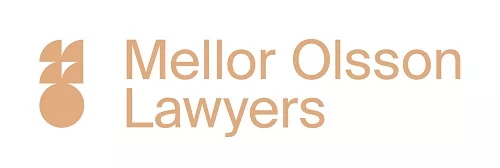On 7 December 2023, Parliament passed the Fair Work Legislation Amendment (Closing Loopholes) Bill 2023 (Bill), splitting the government's omnibus industrial relations bill into two. The Bill received Royal Assent on 14 December 2023. Outlined below are the key changes.
Labour hire workers
The Bill will give power to the Fair Work Commission (FWC) to make orders requiring employers with enterprise agreements to pay labour hire workers at least the same as the direct workforce if they perform the same duties or if the employer's enterprise agreement would apply to the labour hire worker if they were employed directly.
The changes only apply to the employee's entitlement to pay; they do not apply to non-monetary entitlements owed under a host employers industrial instrument.
The changes also do not apply:
- to small business owners;
- for certain short-term or other fixed periods;
- where an employee is paid more under their employment contract, or an industrial instrument that applies to them; or
- to training arrangements administered under State or Territory vocational training schemes.
Most of the changes apply from the day after Royal Assent. From 1 November 2024, the FWC will have authority to make orders for protected rates of pay, i.e. the full rate of pay that would be payable to the hosted worker if they were covered by the host's enterprise agreement. Employers with enterprise agreements should be aware of, and prepare for, these changes to ensure compliance.
Criminalising wage and superannuation theft
The Bill aims to address the issue of wage theft by establishing a federal criminal offence, targeting employers who intentionally underpay workers' entitlements under various industrial instruments.
Underpayments typically occur due to a misinterpretation of an industrial instrument or by genuine mistake and Parliament has acknowledged this by not excluding underpayments that are accidental, inadvertent, or based on a genuine mistake from the offence.
The Bill also incudes a safe harbour framework which allows an employer to self-disclose an alleged wage theft contravention to the Fair Work Ombudsman (FWO) and enter into a co-operation agreement with the FWO.
While a co-operation agreement will provide protection from potential criminal prosecution in relation to intentional wage theft, entering into this agreement will be at the discretion of the FWO. Despite any agreement, the FWO will still have the power to initiate civil proceedings against employers who have underpaid employment entitlements. Employers considering self-reporting underpayments to the FWO will need to consider various factors.
Employers found to have engaged in wage theft will be liable for significant penalties of up to 10 years' imprisonment and/or significant financial penalties (up to $1,565,000 for individuals or up to $7,825,000 for companies). The Court will also have the power to order fines of up to three times the underpayment amount if that amount is greater than these maximum financial penalties.
The new wage theft provisions commence on 1 January 2025, subject to proclamation at an earlier date.
Criminalising industrial manslaughter
The Bill also criminalises industrial manslaughter and increases maximum penalties under Federal occupational health and safety (OHS) laws. This change will bring the Federal OHS regime in line with most of the states and territories including South Australia, which recently passed the Work Health and Safety (Industrial Manslaughter) Amendment Bill making industrial manslaughter a criminal offence in South Australia.
Federal public servants found responsible for the death of a worker face up to 25 years in jail, while Commonwealth departments could be fined up to $18 million. Maximum penalties for category one offences involving reckless or criminally negligent breaches under the Federal OHS laws will also increase to $15 million and 15-years imprisonment.
The new industrial manslaughter provisions will commence on 1 July 2024.
Union delegates rights
The Bill introduces new workplace rights and protections for union delegates and will require employers covered by a fair work instrument (i.e. modern award, enterprise agreement, workplace determination or FWC order) to allow workplace delegates to:
- represent the industrial interest of their members, and any other persons eligible to be such members, including in disputes with their employer;
- communicate with employees who are current and prospective union members at the workplace; and
- access the workplace to facilitate the delegate's duties.
Employers other than small business employers will be required to allow workplace delegates to undertake paid training during normal work hours – without loss of pay – in relation to the role of a workplace delegate.
The Bill also prohibits employers from:
- unreasonably failing or refusing to deal with a workplace delegate; or
- knowingly or recklessly making a false or misleading misrepresentation to a workplace delegate; or
- unreasonably hindering, obstructing, or preventing the exercise of the rights of the workplace delegate.
Failure to comply with the new provisions may lead to the imposition of financial penalties for breaching the Fair Work Act 2009 (Cth).
The changes apply from the day after the Bill receives Royal Assent, i.e. 15 December 2023.
From 1 July 2024, modern awards, enterprise agreements and workplace determinations must include a ‘delegates rights' clause to reflect the above. This new term will only apply to enterprise agreements voted on from 1 July 2024 and will not require employers to amend existing enterprise agreements.
Other changes
The Bill will also:
- close the “loophole” which allowed medium and large sized businesses to claim the small business redundancy exemption and avoid redundancy payment obligations when downsizing;
- strengthen protections against discrimination, including by preventing adverse action against employees subject to family and domestic violence;
- expand access to workers compensation for first responders in relation to post-traumatic stress disorder; and
- bring silica and silica-based illnesses in line with asbestos under the Asbestos Safety and Eradication Agency.
Debate on the Fair Work Legislation Amendment (Closing Loopholes No. 2) Bill 2023, which includes amendments dealing with intractable bargaining workplace determinations, sham arrangements, establishing a definition of casual work, changes to the gig economy and road transport industry will resume in the new year.
Key dates for changes affecting the Fair Work Commission
15 December 2023
- Small business redundancy exemption provisions
- Regulated labour hire arrangement jurisdiction
- Workplace delegates' rights provisions
- Protections for those subject to family and domestic violence
- Amendments to compulsory conciliation conferences in protected action ballot order matters
1 July 2024
- Determinations varying modern awards to include a delegates' rights term
- Delegates' rights term must be included in a workplace determination made on or after 1 July 2024
- Delegates' rights term must be included in an enterprise agreement approved by vote on or after 1 July 2024
1 November 2024
- Regulated labour hire arrangement orders can commence operation
1 January 2025
- Wage theft provisions apply (unless the Minister declares a Voluntary Small Business Wage Compliance Code at a later date, then these provisions apply from that date)
The content of this article is intended to provide a general guide to the subject matter. Specialist advice should be sought about your specific circumstances.

